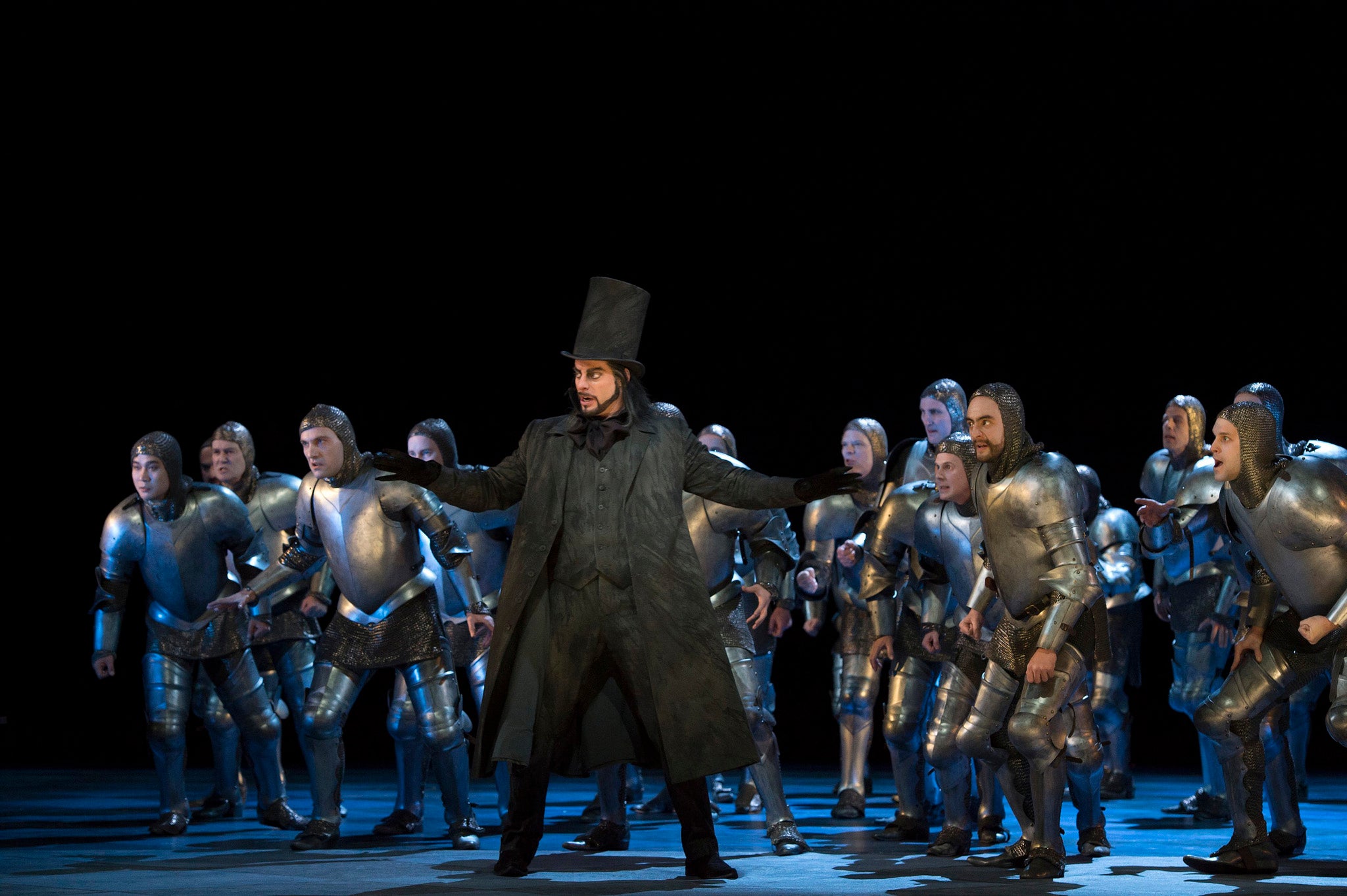Robert le diable, Royal Opera House, London

Every show has a back-story, but this is more convoluted than most. With its Gothic effects – including a saucy ballet for ghostly nuns - and with its massive orchestral, vocal, and choreographic forces, Meyerbeer’s ‘Robert le diable’ quickly became the most popular opera in Europe after its 1831 premiere, yet this is its first London production since 1890.
Its casting has been a chapter of accidents: it was conceived as a vehicle for Juan Diego Florez, but the title role is now sung by Bryan Hymel; the part of Isabelle, Robert’s betrothed, was first allocated to Diana Damrau, whose pregnancy caused it to pass to Jennifer Rowley, who three days before curtain-up was deemed vocally unsuited and was replaced by Patrizia Ciofi.
Set in 13th-century Palermo, the story has echoes of ‘Faust’: Duke Robert has been sired by the devil, who returns to try and claim his soul, and prevent him from winning Princess Isabelle in a tournament. The drama turns not so much on the hero’s choosing between good and evil, as on his inability to make such a choice, and while this may not reflect heroism, it doesn’t justify the liberties director Laurent Pelly has taken.
When Hymel, sandwiched between giant cut-outs of heaven and hell, finally sings in desperation, ‘I don’t know what to do’, the titter running through the auditorium represents an accurate judgment on what Pelly has been up to from the start.
The opening scene finds Robert and his disguised satanic progenitor Bertram presiding over a bunch of carousing knights straight out of a D’Oyly Carte production: this is G&S without the jokes, but drilled in joke-choreography.
Chantal Thomas’s designs – big toy horses, doll-like palace handmaidens - come in bright primary colours and reinforce the pervasive unreality, though she does manage one wonderful coup, creating a mountain which is seemingly burning from within. Meanwhile the principals have clearly been told to camp things up, and to hell with the fact that this work was once thought meaningful. The nuns’ ballet becomes pole-dancing.
It says much for Bryan Hymel, Patrizia Ciofi, John Relyea as Bertram, and Marina Poplavskaya as the virtuous Alice, that these fine singers should so transcend this perverse production that their arias, duets, and trios – abetted by Daniel Oren’s conducting - make a resonant evening.
Join our commenting forum
Join thought-provoking conversations, follow other Independent readers and see their replies
Comments
Bookmark popover
Removed from bookmarks